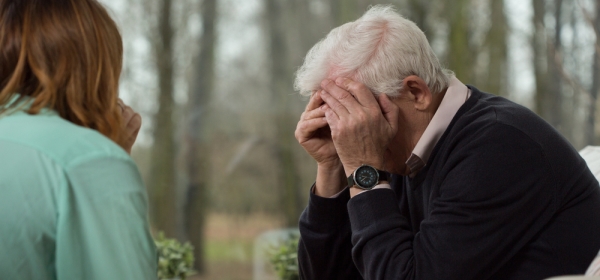The death of a life-long partner is probably one of the most traumatic experiences you can ever have. The way in which you process grief in response to this enormous loss can also depend on whether your partner’s death was expected or sudden. Nevertheless, you may feel as if your entire world as you know it has ended.
In the beginning, dealing with the immediate practicalities – such as finalising documents and organising a funeral – and being surrounded by loved ones can keep your mind busy and distracted from fully facing this major change in your life.
But once all the formalities have passed, and the enormity of it sinks in, you may feel utterly lost and may not be able to fathom how you can live without the one you loved. This, of course, is a natural response. After all, your lives were intertwined. In fact, it may feel as if you had the one, same life, particularly if your relationship was for over 20, 30, or even 40 or so years.
Your partner may have been your lover, your friend, your soul mate and, perhaps, a parent to your children. They were someone to whom you came home each day, with whom you travelled, slept and ate. You asked them for advice and they reciprocated when asked. After all, they were your biggest fan, your all. “He was my North, my South, my East and West, my working week, and my Sunday rest”, goes the poem “Funeral Blues’” written by WH Auden and read by the actor John Hannah in the movie Four Weddings and a Funeral. It may feel the same for you.
As such, you may wish to stay in your grief at first rather than wish to work your way through it. As time passes, the grief may not feel as raw as it once did. Of course, this grief goes deep and is complex. It will take time to process – including how you move forward to create a life now, without your partner. In doing so, you may also notice a shift in in your personality and approach to life, even though you may always miss your partner. This is normal.
When you do begin to do the important work of processing your loss and making changes to rebuild your life, see whether you can avoid judging yourself on how you’re coping and feeling, or being concerned about what others may think. It’s important to do what feels right to you and to look after your wellbeing, so that you can focus on recreating your life.
If you think you aren’t coping, or simply require extra help, don’t feel embarrassed to seek what you need. This is particularly important if you notice you’re sleeping too much, withdrawing from everything or aren’t eating enough. You may wish to approach GriefLine and beyondblue, or seek professional counselling for support.

